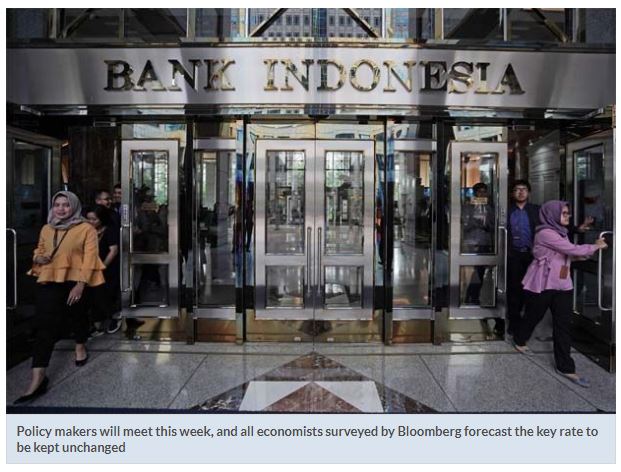Indonesian draft law seeks to limit central bank autonomy
JAKARTA: Indonesia is pursuing another attempt at increasing government influence in the decision-making and operations of its central bank, as well as expanding its ability to fund public debt, according to a draft legislation to be discussed in parliament.
A proposed omnibus financial sector reform bill would require Bank Indonesia to take into account the government’s broad economic strategy when making monetary policy decisions, according to a copy of the bill reviewed by Bloomberg.
The central bank’s mandate would also be extended to promoting job creation, supporting sustainable economic growth and keeping stability in the financial system.
Bank Indonesia declined to comment. A finance ministry officer, Yustinus Prastowo, said a draft is in the works.
This is the second time South-East Asia’s largest economy has attempted to increase the government’s oversight of the central bank, with an earlier measure put forward and ultimately shelved last year after investor pushback.
Similar moves to expand central bank responsibilities have been made elsewhere in the region, with South Korea urged to include employment and New Zealand to consider housing prices.
Like many countries, Indonesia has leaned on its central bank to absorb the blow dealt by the pandemic.
Bank Indonesia has since delivered successive interest-rate cuts, relaxed lending rules, and helped shoulder the largest budget shortfall since the Asian financial crisis. As the pandemic fallout looks set to continue to 2021, threatening the government’s 5% growth goal, monetary authorities could come under renewed pressure to do more to support the economy.
Policy makers will meet this week, and all economists surveyed by Bloomberg forecast the key rate to be kept unchanged.
The draft measure also lays down a new framework for the central bank to finance government debt, initially a one-off move that was allowed last year as the pandemic drained state coffers.
During times of financial crisis, Bank Indonesia may directly purchase bonds in the primary market and repurchase government securities held by private companies through banks, the draft rules show.
It can also reverse-repurchase debt papers from the Indonesia Deposit Insurance Corporation to address any liquidity issues in the banking sector. — Bloomberg


 English
English




